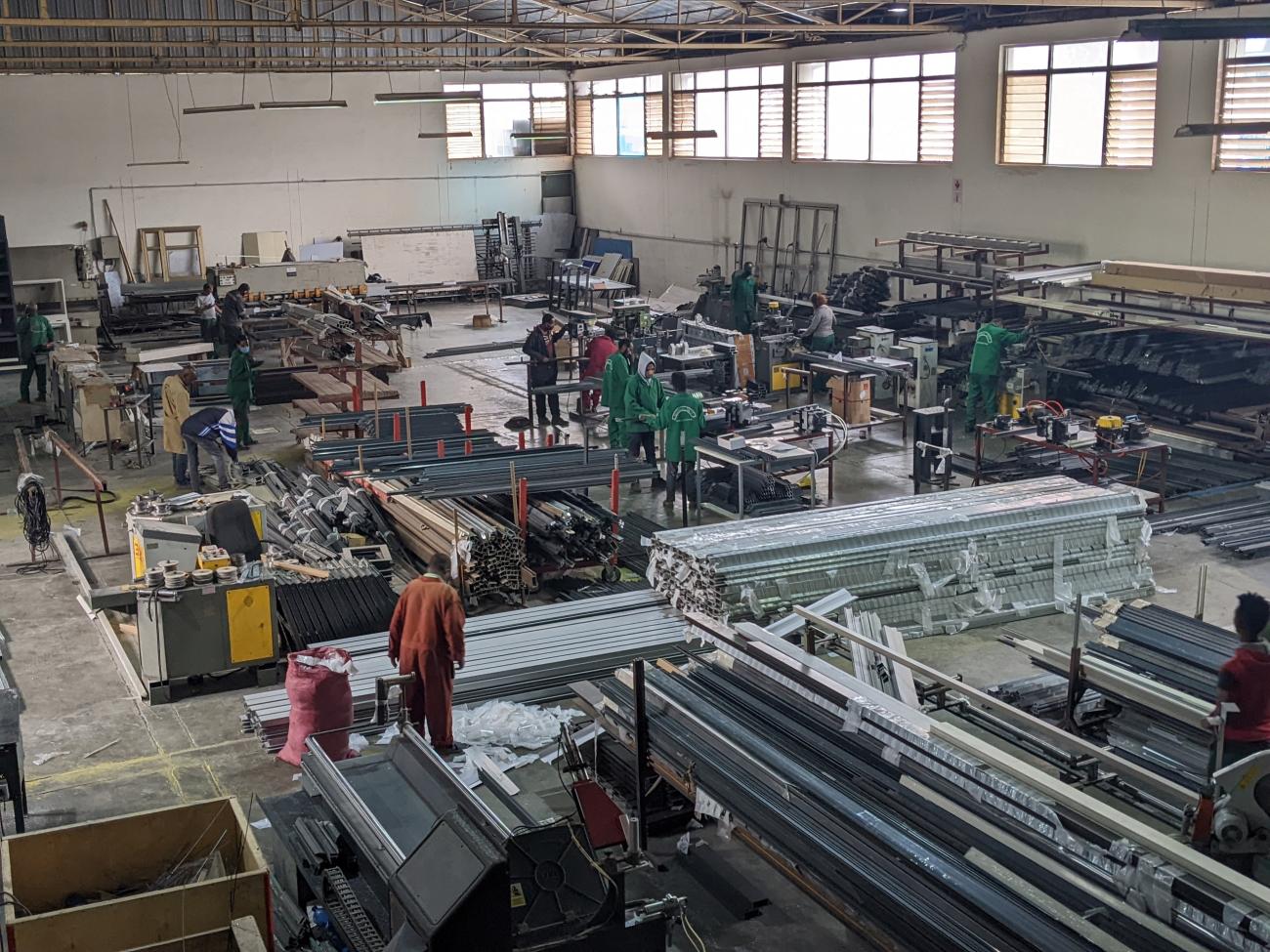ILO promotes industry exposure for vocational trainers to address skills gaps in Ethiopia

ILO promotes industry exposure for vocational trainers to address skills gaps in Ethiopia.
A public-private partnership led by the ILO Country Office in Addis Ababa is providing industry interface to trainers from vocational institutes, enhancing their understanding of skills in demand and evolving management practices in Ethiopia.
In 2021, the ILO through PROSPECTS Ethiopia programme conducted a “TVET system assessment in Somali and Tigray regional states, Ethiopia, with a focus on inclusiveness”. The assessment underlined the importance of maintaining a ratio of 30 per cent theory and 70 per cent practice in TVET training, while in practice, students spend far too little time in industries.
The assessment found that enterprises do not want to risk damaging their machines by giving access to inexperienced TVET students. The root of the issue was that already challenged vocational training systems have poorly capacitated teachers and trainers which affect their ability to transfer skills to their students.
Jean-Yves Barba, Chief Technical Advisor, ILO PROSPECTS Ethiopia, explained: “In fact, there are many cases where students discover their trainers have not had prior practical training or that their knowledge is outdated as per industry standards. In a bid to fill this skills gap among trainers, we felt the urgent need to put in place an up-skilling programme model with support from the industry.”
In February 2022, the ILO, in collaboration with the Ethiopian Employers’ Federation (EEF) and the Lutheran World Federation (LWF), piloted an initiative whereby eight trainers of the public Jigjiga Polytechnic College (JPTC) acquired hands-on vocational and work management skills through a 45-day workplace attachment.
“Each trainer was assigned to work with one supervisor which created one-on-one working relationships and provided space for observation and discussion. The trainers received exposure to different occupations, including sanitation and plumbing, electrical and building installation, construction finishing, and aluminium manufacturing and installation,” said Luladay Aragaw, National Programme Officer, ILO PROSPECTS Ethiopia.
Two member companies of the EEF, SETS Ethiopia and Sunshine Construction, participated in the workplace attachment programme. A pleased company site manager from one of the enterprises reported said, “We would be more than happy to receive additional cohorts as the current ones have also transferred skills of work discipline and diligence and curiosity to our own workers, while encouraging them to constantly ask questions of themselves and others.”
Given that the skills needs of enterprises evolve rapidly, the involvement of employers’ organizations in skills governance arrangements is compelling. Work-based learning has the potential to reduce skills mismatch, meets the skills demand of a fast-changing labour market, and provide cost-effective training.
“The ILO with its tripartite structure offers leadership in facilitating interaction between employers’ organizations and skills development institutions. Improving dialogue between them will ultimately improve private sector development, strengthen school-to-work transition and yield better return on investments to employers,” added Jean-Yves Barba.
ILO PROSPECTS in Ethiopia now plans to expand the work attachment programme to provide trainings to more trainers from TVET institutes. In future, the ILO will advocate for mainstreaming the work attachment models into the TVET education system.
PROSPECTS is a four-year “Partnership for improving prospects for forcibly displaced persons and host communities”, financially supported and spearhead by the Ministry of Foreign Affairs of the Netherlands, and bringing together five agencies (IFC, ILO, UNHCR, UNICEF and the World Bank).

